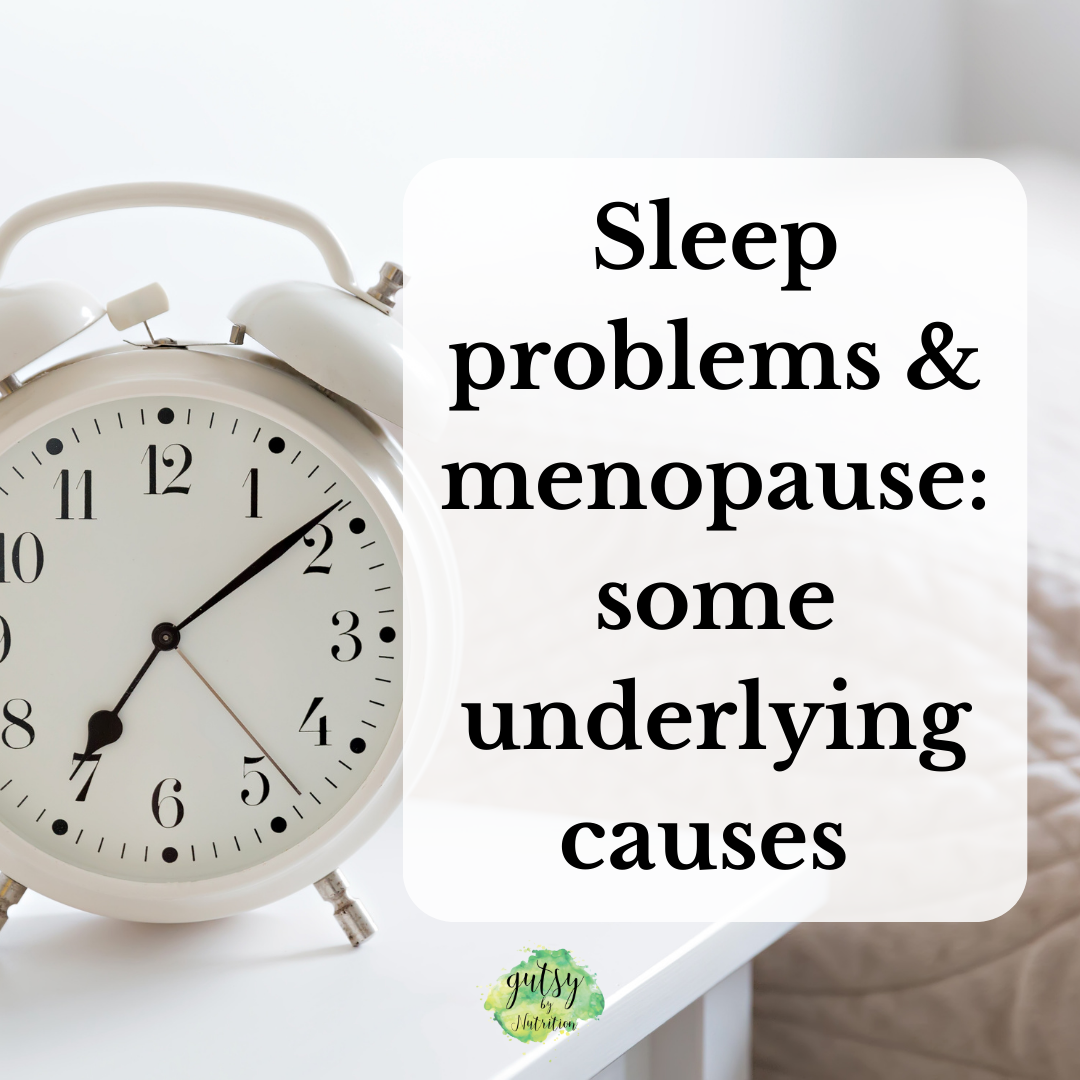The causes of sleep problems in menopause
Perhaps you slept well until menopause, or never slept well?
Sleep is critical for how you feel and function, including to your mood, brain function, detoxification, hormones, memory, gut function, immunity and healthy weight.
lesser known causes of poor sleep
Here are a few of the lesser known causes of poor sleep to give you an idea of how your body systems and sleep are intricately interconnected
BLOOD SUGAR – If you eat too much sugar and refined carbs, your brain will wake you as it runs out of readily available glucose and can’t access fats to perform its vital key roles. It pushes out cortisol, an emergency hormone, to wake you up so that you’ll eat something and give it energy
MICROBIOME – Studies show that microbiome diversity and richness is linked to better quality sleep, longer sleep times and less sleep interruptions. Also, sleep deprivation changes the make-up of your microbiome in negative ways
NEUROTRANSMITTERS – Several brain structures are involved in sleep, as are your neurons or brain cells. These help control your sleep or wakefulness. They partly do this through the production of sleep neurotransmitters like GABA and Galanin. These suppress wakeful ones like dopamine, histamine, norepinephrine and serotonin while you’re asleep. Neurotransmitters that affect your brain are produced in your gut. By altering the types of bacteria in your gut, it may be possible to improve your sleep
HORMONES – Hormonal imbalances are a key factor in sleep problems. Often they’re triggered by underlying problems made worse by sleeplessness in a vicious cycle
Progesterone calms the brain and decreases anxiety. Low menopausal levels can cause sleep problems
Low oestrogen in menopause causes hot flashes, your blood sugar to rise, wakefulness and weight gain
Melatonin is our sleep hormone as it helps regulate other hormones and your circadian rhythms. Low levels can cause poor sleep
Low testosterone is connected to sleep apnoea, which reduces REM or deep sleep, which in turn creates low testosterone in a self-fulfilling cycle

